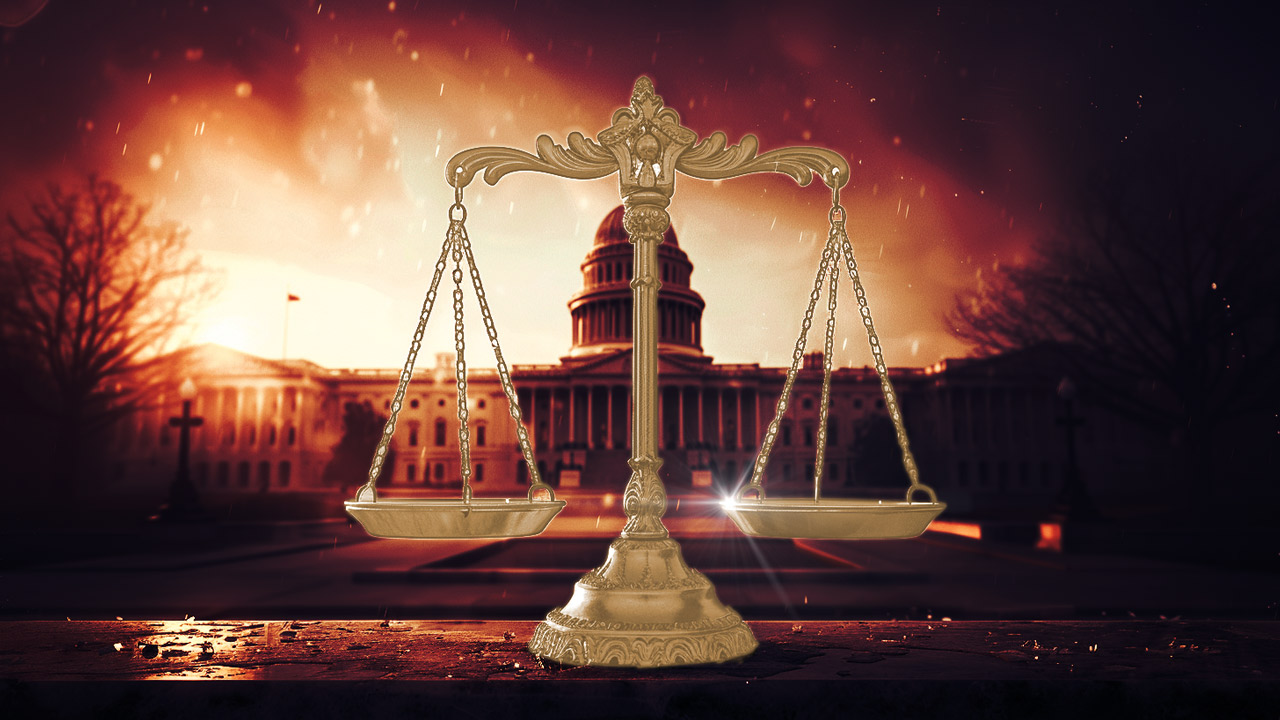Which Money Is the Most Stable, Secure, and Private Today?
 This article was written by Dickson Buchanan, SchiffGold Precious Metals Specialist. Any views expressed are his own and do not necessarily reflect the views of Peter Schiff or SchiffGold.
This article was written by Dickson Buchanan, SchiffGold Precious Metals Specialist. Any views expressed are his own and do not necessarily reflect the views of Peter Schiff or SchiffGold.
Many Americans are concerned about their privacy today. And rightly so. The NSA and governmental authorities maintain their policies are ultimately for the safety and security of the American people. We will leave that debate in the capable hands of others, but where is this same concern when it comes to money? Have central governments given us a safe, secure, and stable money in the dollar system lead by the Federal Reserve? In this article we will compare the dollar to gold and even throw in the most popular cryptocurrency Bitcoin (BTC) to spice things up a bit.
First, let’s define what we mean by security. Dictionary.com defines security as “freedom from danger and risk.” So a more secure money would be a money that minimizes any risks and dangers that threaten its use as money. Under these terms, the dollar is not such a secure money and is becoming increasingly less secure. The dollar is a non-yielding slice of a closed-loop, debt-based, monetary system. Since it’s a closed-loop debt system with no means of extinguishing the debt, the debt can only help but grow. As the debt looms larger and larger, its value questioned, the integrity of the system weakens until it eventually implodes.
How about Bitcoin? BTC is a cryptocurrency. It runs on an interconnected system of hardware and software like the internet. Since the value of BTC is derived from the healthy functioning of those underlying systems, if any one of them were to fail or stop functioning, BTC itself would then be in danger. It’s worth noting that there have already been several “threats” to the BTC ecosystem. Reason documents that bitcoin has been declared dead over 90 times. Yet none of those threats have dethroned the king of the cryptocurrencies. On the other hand, it is still young and there are many serious obstacles that loom in its future. The jury is still out, which means a risky bet for capital in search of security.
And what say ye of gold? Well, gold is independent of any system or counter party. As a physical commodity money, it exists apart from any hardware, software, or internet. Though if desired, it can be represented on the Internet and function as money there too. Gold, unlike the dollar and BTC, comes with no strings or system or central bankers attached. It grants full sovereignty and control to its owner. Counter-party risk is only introduced if the gold owner chooses to introduce it. Do not underestimate this. Indeed, unless your gold be lost to you, or if you happen to wander too close to the fires of Mt. Doom, (not sure how hot Mt. Doom fires are, but gold has a melting point of 1,948 degrees Fahrenheit) your gold is quite secure.
How about some privacy please!?! Ok, which money affords its owners the most privacy? Beginning with gold, consider first that you can avoid reporting requirements when you buy physical gold from our firm. There is also no official reporting registrar where you must declare how much gold you own and where it is. One is able to own and keep large quantities of gold completely unbeknownst to anyone save the parties involved. As a final point, enormous quantities of gold can be exchanged discreetly and “off the books” or “out of the system.”
With electronic dollars, it is nigh impossible to privately exchange value, since those dollars are part of a larger system of banks that must keep records. Compliance and regulation in this system is fierce and growing. The onus is on banks to report any suspicious activity. On the other hand, physical dollars (cash) gives the owner a privacy similar to that of gold. However, it’s not quite the same. Ironically, reporting requirements for cash transactions are in some cases more stringent than with electronic transfers due to increasing concerns over money laundering. This discourages one of the principal reasons to use cash in the first place. And let’s not forget we are witnessing a “War on Cash”.
What about Bitcoin? When BTC was first gaining traction, I remember that privacy and anonymity were touted was one of its main selling points. I don’t hear much about it today. Perhaps the implications of permanently recording all transactions on a public ledger has something to do with it. (Say that one more time out loud for emphasis and then ponder why BTC may not be so anonymous as everyone thought.) I will not go into all the details here but this, this and this are all good starting points. Suffice to say, BTC offers what can be best described as pseudo-anonymity. On the one hand BTC is completely traceable, trackable, and transparent as every single transaction is recorded permanently and publicly on the all-visible, all-accessible blockchain ledger. This is closer to the polar opposite of anonymity. The other side of BTC is that it’s all encrypted and layered. Theoretically you can own a wallet, or several, which doesn’t directly link to your identity. However, the popular exchanges are requiring more and more users to verify their identity in exchange for the wallet services they provide. Yet others are offering services and features that increase the privacy and anonymity a BTC holder can achieve.
My final point of comparison is stability. Stability means firmness or resistance to sudden change or sudden deterioration. Since we are talking about competing monies, it’s appropriate to include the concept of liquidity in addition to stability. Stability and liquidity are closely related, though not the same. Stability can be differentiated from liquidity as firmness or resistance to drastic change over long time periods. Liquidity refers to how easily and efficiently one can convert into another asset with minimal loss of capital. In the current state of monetary affairs, dollars are without question the most liquid money. Paradoxically, the dollar is not the most stable money without question. Gold has proven itself as a stable money over long periods of time (thousands of years), whereas BTC has proven just the opposite – very volatile over a relatively very short time frame. As for liquidity, there are several ways to measure it. Spreads are one way. Market depth is another. The average spread for gold is around $0.30-$1.00 per troy oz., about .0004-.0008%. Larger BTC exchanges have an average spread of anywhere from $0.03 to $0.13, around .000056 to .000242%. Using only spreads as a measurement it would seem that bitcoin is as liquid if not a slightly more liquid than gold. However, once you bring market depth into view, well gold starts to look a bit denser than BTC (very much intended).
Last month, Reuters published an article giving some stats about the bitcoin market:
Bitcoin currently has a market cap of $6.9 billion….while average daily volume for bitcoin is $87.2 million.”
The same figures for the gold market come in at a roughly $7.5 trillion market cap and an average daily turnover of around $240 billion (see this 2010 report by the LBMA). In other words, the volume in the gold market will turn the total BTC market cap over about about 34 times a day. The takeaway here is that it requires a lot more to move the gold market than the BTC market, making gold more liquid than bitcoin.
In conclusion, I’m quite certain the dollar and the dollar system is not going to survive. I am also quite certain that gold is going to stick around. As for BTC and other cryptocurrencies, the jury is still out. Personally, I think the future of early cryptocurrencies is uncertain at best and dubious at worst. However, I am 100% certain that blockchain technology, the structure behind those currencies, is here to stay. With cryptos, there are some obvious analogies to the early advent of the Internet. Not all the early Internet players made it to the next round, but the Internet itself is alive and well and as disruptive as ever. I don’t think the crypto players we see today will all be in our future, but blockchain tech and its derivatives are going to stick around and will be extraordinarily disruptive to traditional financial markets. They already are. This is an exciting age to be living in. As one of the first (and largest at the time) US dealers at the time to accept bitcoin as payment for gold, we look forward with great anticipation to the marriage of blockchain technology with gold and what that could bring forth. As for answering which money offers the most stability, privacy and security today, the choice is clear – gold.
Get Peter Schiff’s latest gold market analysis – click here – for a free subscription to his exclusive weekly email updates.
Interested in learning how to buy gold and buy silver?
Call 1-888-GOLD-160 and speak with a Precious Metals Specialist today!



 The monetary battle of the 20th century was gold vs. fiat. But the monetary battle of the 21st century will be gold vs. bitcoin. With Wall Street jumping into the game with bitcoin ETFs, a bitcoin halving recently splitting the block reward for miners in half, and both gold and bitcoin hovering near their all-time highs, it’s a great time for […]
The monetary battle of the 20th century was gold vs. fiat. But the monetary battle of the 21st century will be gold vs. bitcoin. With Wall Street jumping into the game with bitcoin ETFs, a bitcoin halving recently splitting the block reward for miners in half, and both gold and bitcoin hovering near their all-time highs, it’s a great time for […] What is Nvidia? If you’re a committed gamer the question may sound like nonsense. Nvidia, which was founded in 1993, is a tech company that makes GPUs and other products. It originally specialized in making products for the video game industry, that assisted in 3D rendering. If you were a committed gamer, you probably owned their products. If you weren’t, you might not have heard of them.
What is Nvidia? If you’re a committed gamer the question may sound like nonsense. Nvidia, which was founded in 1993, is a tech company that makes GPUs and other products. It originally specialized in making products for the video game industry, that assisted in 3D rendering. If you were a committed gamer, you probably owned their products. If you weren’t, you might not have heard of them. With the AI boom and green energy push fueling fresh copper demand, and with copper mines aging and not enough projects to match demand with supply, the forecasted copper shortage has finally arrived in earnest. Coupled with persistently high inflation in the US, EU, and elsewhere, I predict the industrial metal will surpass its 2022 top to reach a […]
With the AI boom and green energy push fueling fresh copper demand, and with copper mines aging and not enough projects to match demand with supply, the forecasted copper shortage has finally arrived in earnest. Coupled with persistently high inflation in the US, EU, and elsewhere, I predict the industrial metal will surpass its 2022 top to reach a […] America’s trust in its institutions has rapidly eroded over the past 20 years. We have a lower level of trust in our judicial system and elections than most European countries. Some of this is natural, as Americans are uniquely individualistic, but much of it arises from repeated government failures.
America’s trust in its institutions has rapidly eroded over the past 20 years. We have a lower level of trust in our judicial system and elections than most European countries. Some of this is natural, as Americans are uniquely individualistic, but much of it arises from repeated government failures. Decades of negative interest rate policy in Japan have ended. That could mean the end of the $20 trillion “yen carry trade,” once one of the most popular trades on foreign exchange markets, and a chain reaction in the global economy. The yen carry trade is when investors borrow yen to buy assets denominated in […]
Decades of negative interest rate policy in Japan have ended. That could mean the end of the $20 trillion “yen carry trade,” once one of the most popular trades on foreign exchange markets, and a chain reaction in the global economy. The yen carry trade is when investors borrow yen to buy assets denominated in […]
Leave a Reply